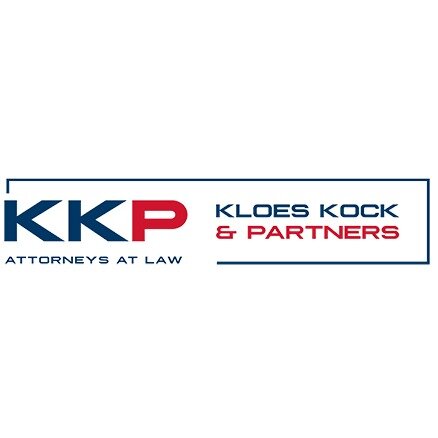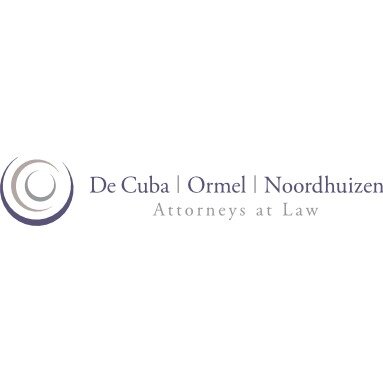Best Commercial Litigation Lawyers in Aruba
Share your needs with us, get contacted by law firms.
Free. Takes 2 min.
Or refine your search by selecting a city:
List of the best lawyers in Aruba
About Commercial Litigation Law in Aruba
Commercial litigation in Aruba involves resolving disputes arising from business and commercial relationships. This branch of law covers a wide range of matters, such as contract disputes, shareholder disagreements, debt recovery, partnership issues, and other conflicts between companies or businesspersons. Arbitration and mediation are often considered, but many cases proceed through the Aruban judicial system. The goal is to resolve disputes efficiently, protect commercial interests, and uphold business agreements within the framework of Aruban law.
Why You May Need a Lawyer
Navigating commercial litigation without expert legal guidance can be risky due to the complexity of Aruban laws and the economic stakes involved. You may need a lawyer if you are facing issues such as breach of contract, partnership or shareholder disputes, insolvency proceedings, collection of unpaid debts, or enforcement of business agreements. Legal professionals help protect your interests, ensure compliance with local laws, represent you in court, and often assist in negotiating settlements to avoid lengthy trials. Engaging a lawyer early can prevent costly mistakes and improve your chances of a favorable outcome.
Local Laws Overview
Aruba’s commercial litigation landscape is primarily governed by the Civil Code and the Code of Civil Procedure. The legal system in Aruba is based on Dutch law, with important adaptations for the local context. Core aspects include the enforceability of contracts, legal requirements for valid agreements, rules for evidence and proceedings, and specific procedures for handling commercial and corporate disputes. Arbitration is recognized, and courts may recommend it for certain cases. There are also distinct rules for bankruptcy, insolvency, and winding-up of companies operating in Aruba. Deadlines and procedural requirements must be strictly adhered to, as failure to comply can adversely affect your case.
Frequently Asked Questions
What counts as commercial litigation in Aruba?
Commercial litigation involves any legal dispute arising from business dealings, such as conflicts between companies, disputes over contracts, debt collection, or issues between shareholders and partners.
Can foreign companies initiate litigation in Aruba?
Yes, foreign companies can bring claims in Aruban courts if the dispute relates to business transactions or contracts governed by Aruban law or involving Aruban parties.
What is the typical process for a commercial lawsuit?
The process usually begins with a formal complaint, followed by written defenses, submission of evidence, court hearings, and a final judgment. Some cases may involve preliminary measures or appeals depending on complexity.
Are mediation or arbitration required before court proceedings?
While not always mandatory, courts in Aruba often encourage parties to pursue alternative dispute resolution methods like mediation or arbitration to resolve issues more efficiently.
How long does commercial litigation typically take?
The duration varies widely depending on the complexity of the case, the amount in dispute, and court schedules. Simple cases might resolve in months, while complicated matters can take a year or more.
What is the language of the courts in Aruba?
Dutch is the official language used in courts. However, Papiamento and English are also widely spoken, and legal professionals are often multilingual.
Can I recover my legal costs if I win?
Yes, it is possible to recover some or all of your legal costs if you prevail, but this is at the discretion of the court and depends on the circumstances of the case.
What is the statute of limitations for commercial claims?
In general, the limitation period for contractual claims in Aruba is five years, but exceptions may apply depending on the specific nature of the dispute.
Is it possible to enforce a foreign judgment in Aruba?
Recognition and enforcement of foreign judgments are possible under certain conditions, particularly if there is a treaty in place or if the Aruban court finds the foreign ruling compatible with local legal principles.
Do I need to be physically present in Aruba for legal proceedings?
In many cases, your lawyer can represent you. However, your presence may be required for certain hearings or if you have to provide testimony.
Additional Resources
If you need support or information regarding commercial litigation in Aruba, consider reaching out to the following:
- The Common Court of Justice of Aruba, Curacao, Sint Maarten, and Bonaire, Sint Eustatius, Saba - Responsible for civil and commercial cases.
- Aruba Bar Association - Offers directories of qualified attorneys specializing in commercial law.
- Chamber of Commerce and Industry Aruba - Provides information about business regulations, commercial entities, and dispute resolution.
- Department of Economic Affairs - Can assist with questions about business compliance and regulatory frameworks.
Next Steps
If you are involved in or anticipate a commercial dispute in Aruba, the best course of action is to seek consultation with a legal professional specializing in commercial litigation. Prepare all relevant documents, such as contracts, correspondence, and evidence related to the matter. Contact a qualified attorney to discuss your case, understand your rights, and determine the most effective strategy. Early legal advice can help you avoid unnecessary costs, preserve your options, and potentially resolve the dispute before it escalates. If you are unsure where to start, use the resources listed above to locate a reputable legal specialist in Aruba.
Lawzana helps you find the best lawyers and law firms in Aruba through a curated and pre-screened list of qualified legal professionals. Our platform offers rankings and detailed profiles of attorneys and law firms, allowing you to compare based on practice areas, including Commercial Litigation, experience, and client feedback.
Each profile includes a description of the firm's areas of practice, client reviews, team members and partners, year of establishment, spoken languages, office locations, contact information, social media presence, and any published articles or resources. Most firms on our platform speak English and are experienced in both local and international legal matters.
Get a quote from top-rated law firms in Aruba — quickly, securely, and without unnecessary hassle.
Disclaimer:
The information provided on this page is for general informational purposes only and does not constitute legal advice. While we strive to ensure the accuracy and relevance of the content, legal information may change over time, and interpretations of the law can vary. You should always consult with a qualified legal professional for advice specific to your situation.
We disclaim all liability for actions taken or not taken based on the content of this page. If you believe any information is incorrect or outdated, please contact us, and we will review and update it where appropriate.
Browse commercial litigation law firms by city in Aruba
Refine your search by selecting a city.











